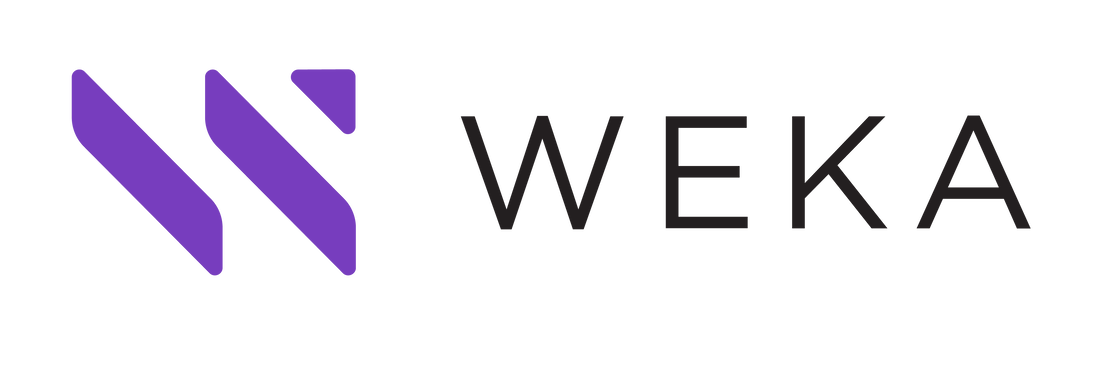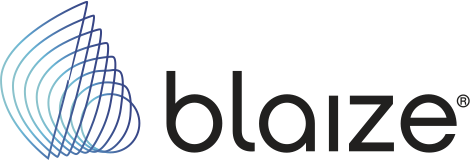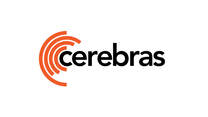Theme:
The design space for large scale distributed computing and analytics is increasingly rich, complex, and diverse (e.g. Accelerator technologies, IoT, SmartNICs, Computational Storage, Hybrid-MultiCloud, and HPC). As scale and distribution grows, so does the impact of where data is moved and computations occur, as well as the need to address resilience, control, privacy, and security. The build out of the Internet of Things (IoT) and other large-scale, geographically dispersed federated systems (such as smart cities, connected transportation, power grids, and healthcare) presents a multitude of opportunities and challenges when designing large-scale analytics. Optimally managing up to tens of billions of endpoints capable of collecting new and growing sources of data, and millions of heterogeneous distributed computing elements (e.g., sensors, edge processors, mobile devices, on-premise servers, SmartNICs, Computational Storage, Clouds, HPC systems, etc.) creates significant performance, cost, and software development complexities. Insightful and pivotal decisions on where to collect, process, and analyze data will be required to achieve acceptable latencies, accurate conclusions, at acceptable costs.
The design space for large scale distributed computing and analytics is increasingly rich, complex, and diverse (e.g. Accelerator technologies, IoT, SmartNICs, Computational Storage, Hybrid-MultiCloud, and HPC). As scale and distribution grows, so does the impact of where data is moved and computations occur, as well as the need to address resilience, control, privacy, and security. The build out of the Internet of Things (IoT) and other large-scale, geographically dispersed federated systems (such as smart cities, connected transportation, power grids, and healthcare) presents a multitude of opportunities and challenges when designing large-scale analytics. Optimally managing up to tens of billions of endpoints capable of collecting new and growing sources of data, and millions of heterogeneous distributed computing elements (e.g., sensors, edge processors, mobile devices, on-premise servers, SmartNICs, Computational Storage, Clouds, HPC systems, etc.) creates significant performance, cost, and software development complexities. Insightful and pivotal decisions on where to collect, process, and analyze data will be required to achieve acceptable latencies, accurate conclusions, at acceptable costs.
Organizing Committee:
Jim Ang, Pacific Northwest National Laboratory
John Feo, Pacific Northwest National Laboratory
David Haglin, Trovares, Inc.
Ron Oldfield, Sandia National Laboratories
Richard Murphy, Gem State Informatics, Inc.
Almadena Chtchelkanova, National Science Foundation
Brad Spiers, Committee Advisor
Candace Culhane, Los Alamos National Laboratory
Nick Rogers, Department of Defense
TC Tuan, Department of Defense
Steve Pritchard, Committee Advisor
John Feo, Pacific Northwest National Laboratory
David Haglin, Trovares, Inc.
Ron Oldfield, Sandia National Laboratories
Richard Murphy, Gem State Informatics, Inc.
Almadena Chtchelkanova, National Science Foundation
Brad Spiers, Committee Advisor
Candace Culhane, Los Alamos National Laboratory
Nick Rogers, Department of Defense
TC Tuan, Department of Defense
Steve Pritchard, Committee Advisor
Agenda
Monday, October 24, 2022
|
7:00 -- 8:30 pm
|
Welcome Reception (Graduate Atrium)
|
Tuesday, October 25, 2022
General Session Location: The Ballroom
General Session Location: The Ballroom
|
7:00 — 8:00 am
|
Breakfast and Registration (Atrium)
|
|
8:00 — 8:30
|
Welcome
George Cotter Award for Vision and Leadership in the Field of Data Analytics |
Jim Ang, PNNL
Candy Culhane, LANL |
|
8:30 — 9:15 am
|
Keynote: Moving from Data to Information to Enhance USAF Decision-Making Capabilities
|
Dr. Qing Wu, Air Force Research Lab.
|
|
Session 1: Applications
|
Moderator: Ron Oldfield
|
|
9:15 — 10:00 am
|
Sudip Dosanjh, LBL/NERSC
|
|
10:00 — 10:15 am
|
Break: (Atrium)
|
|
10:15 — 11:00 am
|
Pete Beckman, ANL
|
|
11:00 — 11:45 am
|
Eric Davis, Galois Inc.
|
|
11:45 — 12:30 pm
|
Panel Discussion
|
|
12:30 — 1:45 pm
|
Lunch (Atrium)
|
|
Session 2: Software
|
Moderator: Nick Rogers
|
|
1:45 — 2:30 pm
|
Primate: Towards the Automatic Generating Soft Processor Overlays and Tooling
|
Derek Chiou, University of Texas, Austin
|
|
2:30 — 3:15 pm
|
Compilers and Tools for Edge Computing
|
Richard Lethin, Qualcomm
|
|
3:15 — 3:30 pm
|
Break (Atrium)
|
|
3:30 — 4:15 pm
|
Adam Thompson, NVIDIA
|
|
4:15 — 5:00 pm
|
Panel Discussion
|
|
|
6:00 — 7:30 pm
|
Thomas Sterling, Indiana University
|
|
7:30 — 9:30 pm
|
Reception (Mainsail/Spinnaker)
|
|
Wednesday, October 26, 2022
General Session Location: The Ballroom
General Session Location: The Ballroom
|
7:00 — 8:30 am
|
Breakfast and Registration (Atrium)
|
|
8:30 — 9:15 am
|
Dr. Ilkay Altintas, SDSC
|
|
Session 3: Software
|
Moderator: John Feo
|
|
9:15 — 10:00 am
|
David Bader, New Jersey Institute of Technology
|
|
10:00 — 10:15 am
|
Break (Atrium)
|
|
10:15 — 11:00 am
|
Vijay Gadepally, MIT
|
|
11:00 — 11:45 am
|
Vito Castellana, PNNL
|
|
11:45 — 12:30 pm
|
Panel Discussion
|
|
12:30 — 6:00 pm
|
Free time: Lunch and Dinner on your own
|
Random Access
The Ballroom
The Ballroom
|
6:00 — 7:30 pm
|
Sign-up sheet will be at the registration table. Talks are limited to 8 minutes.
|
Moderator: Steve Pritchard
|
Reception/Poster Session
(Mainsail/Spinnaker)
(Mainsail/Spinnaker)
|
7:30 — 9:00 pm
|
Students
|
|
Toward Knowledge-Rich Multimodal Foundation Models for Cybersecurity
|
Nicholas Botzer, University of Notre Dame
|
|
Internet of Things Security Education for Undergraduate Computer Science Students
|
Priyanka Ranade, University of Maryland
|
|
Double-tap to edit.
|
Bayesian Operator Inference for Parametric Reduce-Order Models
|
Shane McQuarrie, University of Texas, Austin
|
|
Double-tap to edit.
|
A Real-Time Edge Data Analytics Framework for Air Traffic Control
|
Sharmistha Chakrabarti, University of Central Florida
|
Thursday, October 27, 2022
General Session Location: The Ballroom
General Session Location: The Ballroom
|
7:00 — 8:30 am
|
Breakfast (Atrium)
|
|
8:30 — 9:15 am
|
Ryan Weil
|
|
Session 4: Hardware
|
Moderator: Rich Murphy
|
|
9:15 -- 10:00 am
|
Fast Cheap and Out of Control: Optimal Networks for Large-Scale Analytics
|
Fabrizio Petrini, Intel
Laura Monroe, LANL |
|
10:00 — 10:15 am
|
Break (Atrium)
|
|
10:15 — 11:00 am
|
Enabling The Future of Connected Devices
|
Harish Arunachalam, Verizon
|
|
11:00 — 11:45 am
|
Johnathan Cree, Pacific Northwest National Laboratory
|
|
11:45 — 12:30 pm
|
Panel Discussion
|
|
12:30 — 1:45 pm
|
Lunch (Atrium)
|
|
Session 5: Policy and Ethics
|
Moderator: Brad Spiers
|
|
1:45 -- 2:30 pm
|
Confidential & Secure AI/ML Cybersecurity at the Edge
|
Roberta Faux and Hunter Richards, Lorica Cybersecurity
|
|
2:30 -- 3:15 pm
|
Ethical Challenges of Ambient Intelligence and Continuous Monitoring Technologies in Healthcare
|
Nicole Martinez-Martin, JD, PhD, Stanford School of Medicine’s Center for Biomedical Ethics
|
|
3:15 -- 3:30 pm
|
Break (Atrium)
|
|
3:30 -- 4:15 pm
|
Whose Data Are You Processing at the Edge?
|
Mark Fagan, Harvard
|
|
4:15 -- 5:00 pm
|
Panel Discussion
|
|
5:00 -- 5:15 pm
|
Closing Remarks and Adjourn
|
|
5:00 -- 6:30
|
Closing Reception
|

















